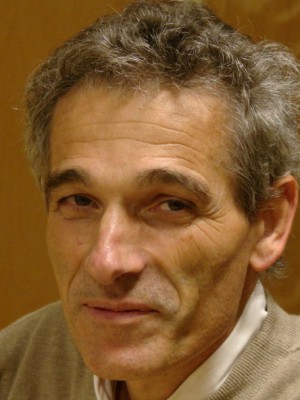resumo
Electrical conductivity, thermal expansion and redox behavior of Y- and Al-substituted SrVO3 were evaluated for potential use in solid oxide fuel cell anodes. Sr1-xYxV1-yAlyO3-delta (x = 0-0.4, y = 0-0.2) ceramics were prepared by solid state reaction route and sintered in hydrogen-containing atmosphere. Solid solubility limits of yttrium and aluminum cations in SrVO3 perovskite lattice were found close to similar to 25% of strontium sublattice and 8-10% of vanadium sublattice, respectively. Under reducing conditions, all ceramics exhibit nearly p(O-2)-independent metallic-like electrical conductivity slightly decreasing with substitution level. Undoped SrVO3-delta is characterized with unfavorably high thermal expansion coefficient (TEC = 21.6 x 10(-6) K-1 at 823-1273 K) impeding thermomechanical compatibility with common solid electrolytes. Substitutions with yttrium and aluminum suppress to some extent oxygen nonstoichiometry variations and thermal expansion decreasing average TEC values down to (14.5-15.1) x 10(-6) K-1 at 300-1273 K. Substitutions extend also phase stability domain of perovskite phase, enabling processing of Sr(Y)V(Al)O3-delta electrodes in inert atmosphere with p(O-2) similar to 5 x 10(-5) atm. Slow decomposition into Y5+-based phases is observed however at slightly higher oxygen pressure of similar to 10(-4) atm. Oxidative decomposition into Sr2V2O7 and YVO4 phases on heating in air results in significant bulk dimensional changes, contributed by progressive sintering of Sr2V2O7 phase fraction. (C) 2013 Elsevier B.V. All rights reserved.
palavras-chave
OXIDE FUEL-CELLS; LANTHANUM STRONTIUM VANADATE; PERFORMANCE; SR2VO4; TEMPERATURE; MEMBRANES; SYNGAS; H2S
categoria
Chemistry; Physics
autores
Yaremchenko, AA; Brinkmann, B; Janssen, R; Frade, JR
nossos autores
Projectos
ORIEL - Oriented Lanthanum Silicate Thin Film Electrolytes for IT-SOFCS (PTDC/CTM-CER/118933/2010)
agradecimentos
This work was supported by the FCT, Portugal (projects PTDC/CTM-CER/118933/2010 and PEst-C/CTM/LA0011/2011, and Ciencia program) and EULANEST 066-SOCs project.



